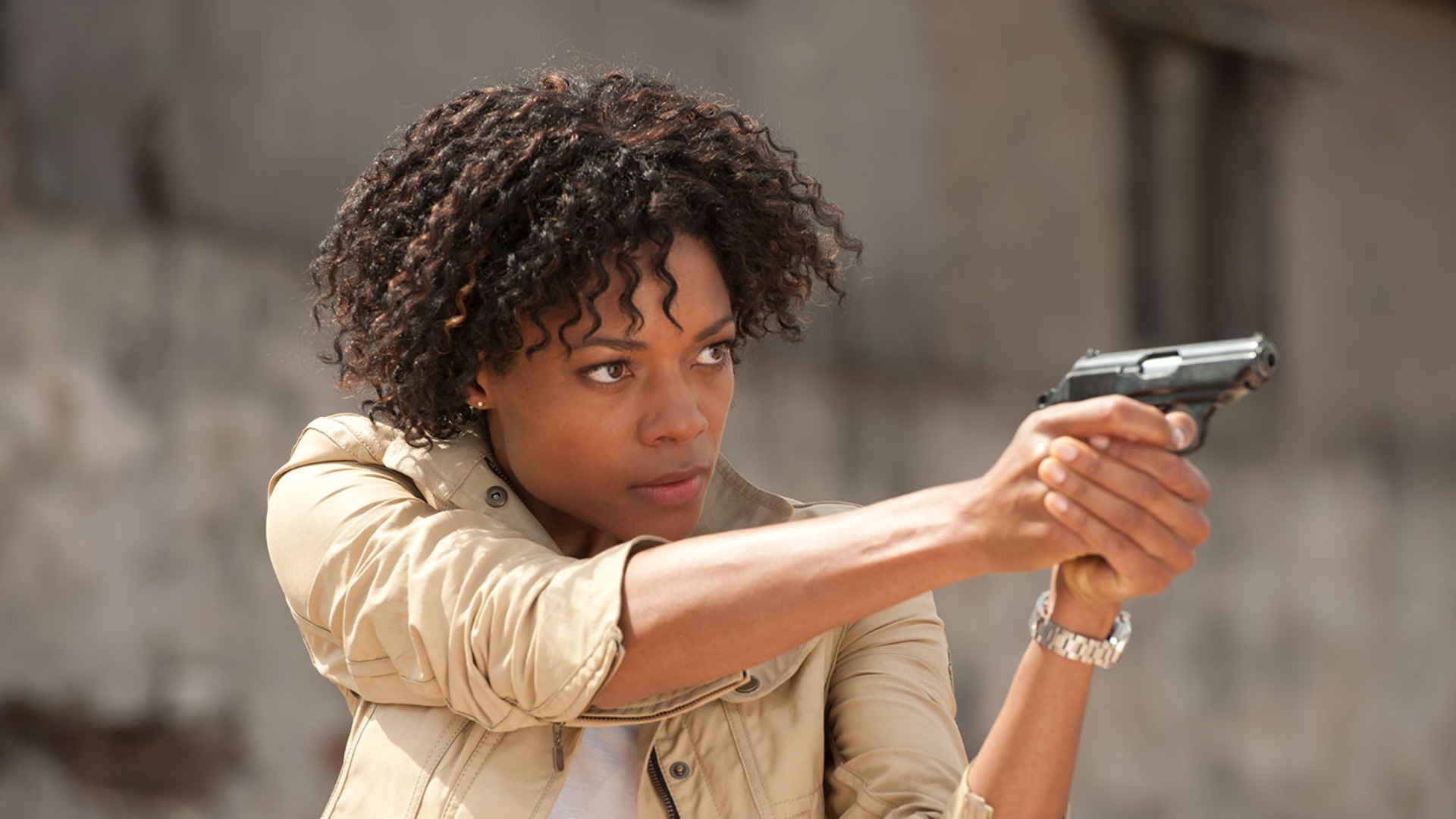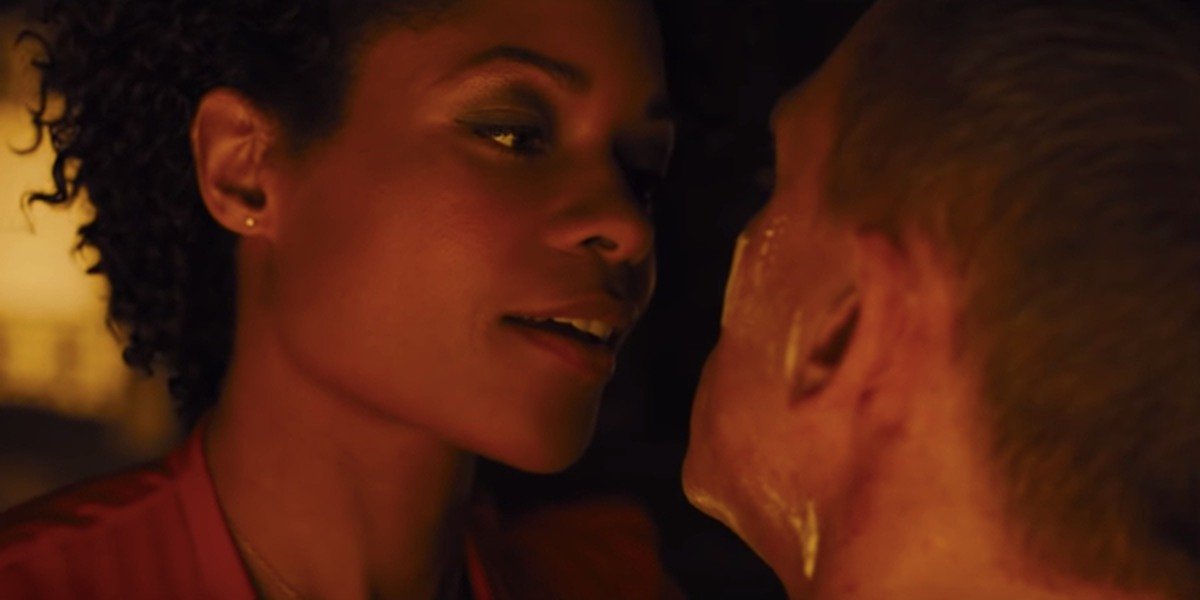Don't have a female Bond — make a Moneypenny movie instead!
Why gender-flip James Bond when we can have a Moneypenny movie instead?

After a very long wait and more than one schedule change, the 25th James Bond movie, No Time to Die, is finally here. It’s a big moment for one of the most beloved and iconic franchises in cinematic history. The film signals the last hurrah of Daniel Craig as 007, plus it’s the first film in the series to be directed by an American, the Emmy-winning filmmaker Cary Joji Fukunaga. With critics giving the film the thumbs up and the international box-office already proving to be a success (it opens in the U.S. on Oct. 8), it feels as though it’s time for another round of Bond discourse.
Craig’s impending departure has inspired the usual round of conversations around not only who will next play Bond but whether that person can be a woman. Fan casting has thrown around names like Charlize Theron, Gwendoline Christie and Priyanka Chopra on the table. Gillian Anderson, when asked if she would play a Bond girl, said she’d rather play Bond. It’s not hard to find an actress working today who would kill to headline a decades-long action saga that helped to shape the face of cinema.
Of course, it’s an idea that’s led to a lot of the usual furor over gender-swapping male roles and it’s inspired a lot of the same tedious bad-faith anger that sees the mere presence of women in a default male space as some sort of hyper-feminist attack. Seeing that kind of petulance makes it easy to defend the concept, but there are legitimate reasons to think a female Bond is a bad idea.
As both Craig and long-time Bond producer Barbara Broccoli noted, surely it’s a better investment to create new IPs for female-fronted action stories? Broccoli even put her money where her mouth is by producing Blake Lively’s The Rhythm Section.
Bond is a story at its best when it examines the often-brutish masculinity of its protagonist, a man who skirts the line between hero and anti-hero, and a figure whose attitudes towards women, sex and power have shifted as the years have passed. One of the reasons Craig is such a compelling Bond is because he keenly understands how broken and arrogant the character can be. Just watch the shift in his personality from Casino Royale to Skyfall to get the full picture. So, having a woman become the face of this old empire, both literal and cultural, and not be given the room to be her own person feels redundant.
Of course, if the Bond producers want to take the franchise in new directions post-Craig and they are truly interested in putting a female character front and center, they have a great option on the table already. Enter Eve Moneypenny.

Miss Moneypenny is probably the most consistent woman in Bond’s life. The secretary to M, Bond’s commanding officer, and his flirting partner of many cinematic iterations, Moneypenny is one of the more overlooked female characters in blockbuster cinema. In Ian Fleming's novels, she is stridently professional with Bond but also hopelessly smitten with him, while in the films, she regularly banters with him before he is assigned new cases. She's dedicated to her work and holds the rank of Second Officer in the Women's Royal Naval Service, all of which has earned her Top Secret clearance at a level that only a handful of figures are entitled to.
The latest updates, reviews and unmissable series to watch and more!
It took until 2012's Skyfall for Moneypenny to earn a backstory and a first name, Eve. As played by Naomie Harris, Eve is shown as a field officer who accidentally injures Bond on a mission in Istanbul, which leads to everyone assuming he's dead. Eve ends up stuck on desk duty as punishment, although she also returns to the field once Bond resurfaces. In Macau, she helps Bond locate an agent of the villain of the week, Raoul Silva, but she later decides to retire from fieldwork and become secretary to the new M.
Moneypenny is a character in large part defined by her potential, and the franchise's wasting of it. Bond actor Roger Moore once expressed regret that Lois Maxwell, the original Moneypenny, had not been given a chance to be promoted to M. In later films, such as the cheesier, shark-jumping titles in the Pierce Brosnan era, Moneypenny is more sexually charged in her flirtations with Bond, but in turn she ends up turning into a man-obsessed ditz.
Ian Fleming Publications optioned a trilogy of novels from Moneypenny's point-of-view in the 2000s called The Moneypenny Diaries, written by Samantha Weinberg, under the pseudonym Kate Westbrook. While the books offered a backstory and more characterization for Moneypenny, they were decidedly frothy reads with a pastel sheen that the publishers marketed more as "chick lit" than serious spy stories. That's not a bad thing, of course, but it felt indicative of how Moneypenny as a whole has never been taken all that seriously, even by the estate that prizes this property so highly.
The opportunities are rife for Moneypenny to step back into the field. It would certainly be a refreshing addition to the spy genre, one that has frequently overlooked the long history of women agents and the crucial and often dangerous work they’ve done. Moneypenny herself was inspired by the likes of Vera Atkins, a British intelligence officer who was part of the team that evacuated Poland's Enigma code breakers into Romania, and Paddy Ridsdale, an operative who assisted Fleming's own counter-intelligence efforts during World War II.
As the Craig movies have also shown, Moneypenny fits perfectly into this world they’ve remolded for the 21st century. Blessedly, she’s not even the only woman in the field now, with No Time to Die introducing a new 00 agent played by Lashana Lynch, as well as Ana de Armas as a CIA operative assisting Bond in the field. Eve works as a character because she seems to have a much more level head on her shoulders than the oft traumatized and stubborn Bond. She knows her limits but still has a sense of humor about it all. When she flirts with Bond in Skyfall, during one of the sexiest shaving scenes in cinema history, the power dynamic feels more balanced than it ever has in this franchise. It also helps that Harris is so striking in the role.
Also: Best James Bond films: Every Bond movie ranked
So, why not let Harris headline her own stories? She's an Oscar-nominated actress with close to 35 years in the business, and she's more than proven herself in action roles, from Skyfall to 28 Days Later to Michael Mann's sinfully underrated reboot of Miami Vice. She also has the role of Shriek in Venom: Let There be Carnage, which offers some great opportunities for chaotic action madness.
Harris can be fiery and provocative, then switch it up to cool-as-a-cucumber allure. Imagine Harris as Eve, back in the field, a little wobbly but still skillful and offering a kind of stealth and intrigue that Bond often rejects. It would also be an exciting opportunity to change up the stylistic aspects of the Bond world. Perhaps a Moneypenny movie could be neon drenched and icy cool, in the manner of Charlize Theron’s Atomic Blonde?
The James Bond franchise endures because it’s a sturdy formula that can easily shift to accommodate contemporary ideas and evolving notions of cinema. At its best, it shows what it means to be a man over the decades. Leave 007 to the boys and let’s see if we can establish that kind of narrative for women, one where they don’t need to just be the gender-flipped version of a guy. Moneypenny is long overdue her moment in the spotlight.
Kayleigh is a pop culture writer and critic based in Dundee, Scotland. Her work can be found on Pajiba, IGN, Uproxx, RogerEbert.com, SlashFilm, and WhatToWatch, among other places. She's also the creator of the newsletter The Gossip Reading Club.



